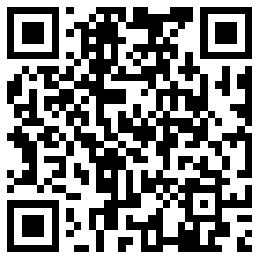1. Clarity
When multiple surveillance cameras are tested, the same lens should be used (fixed focus and two variable lenses are recommended). The center circle of the test card appears on the left and right sides of the monitor screen. The given scale lines are clearly and accurately counted, including 10 groups of vertical lines and 10 groups of horizontal lines. They represent the vertical definition and the horizontal definition respectively, and the corresponding group has given the number of lines. If vertical 350 lines and horizontal 800 lines, it is better to use black and white monitors. When testing, it can focus on the far scene, or focus while testing. It's better to use both of them. You can see the difference of this camera (for far and near convergence).
2. Color reducibility
The color monitor that should be selected for testing this parameter. First of all, people and clothing should be observed from a distance to see whether there is color distortion. Take objects with bright colors and see the response sensitivity of the camera. Put the color picture album in front of the camera to see the clarity of the picture. If it is too light or too thick, the moving color objects should be photographed again to see whether there is color tailing, delay and blur. The test condition is such that when the maximum illumination of camera is 50V, it should be measured under the condition of 50 + 10V illumination, that is, add 10V to the maximum illumination of each camera, and keep the diaphragm in the closest state.
3. Illumination
The camera is placed in the darkroom. The front and rear of the darkroom are active 220 V self igniting lamps, and a voltage regulator is set at the position. The voltage can be adjusted from 0V to 250V. The indoor light can also be adjusted from the darkest to the brightest. When the aperture of the camera is opened to the maximum, a minimum illumination value is recorded (the active lamp is dimmed with a voltage regulator until the built-in picture of the darkroom can not be seen clearly), and then the aperture is set to the minimum, and then the minimum illumination value is recorded. The front and rear lights can be adjusted to light and light separately.
4. Backlight compensation
There are two ways to test this parameter: one is to turn on the voltage regulating lamp at the front of the camera in the dark room, when it is turned to the brightest, then place a picture or text under the lamp, and take the camera in front of the light to see whether the image and text can be seen clearly, and the picture is not dazzling, and adjust the Al and ax switch to see if there is any change, which effect is the best. The other is to shine the camera out of the window in the case of sufficient sunshine to see whether the image and text can be seen clearly.
5. Spherical distortion
To see the spherical distortion, the test card is placed in the front of the camera to make the whole sphere appear on the screen to see whether the spherical shape has ellipse or not, move the camera forward to see whether the circle center is enlarged, and then test the edge, corner and frame for arc distortion in a long distance.
6. Power consumption
Minimum operating voltage, use a multimeter to measure the current, use a small regulator to adjust the voltage to see.
 13423810014
13423810014  0755-29433686
0755-29433686  daming@cameras-module.com
daming@cameras-module.com  2/F, Building H, Zhiyihan Industrial Park, Yuanling Village, Shiyan Town, Baoan District, Shenzhen 518108
2/F, Building H, Zhiyihan Industrial Park, Yuanling Village, Shiyan Town, Baoan District, Shenzhen 518108 





